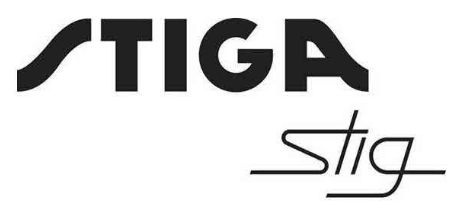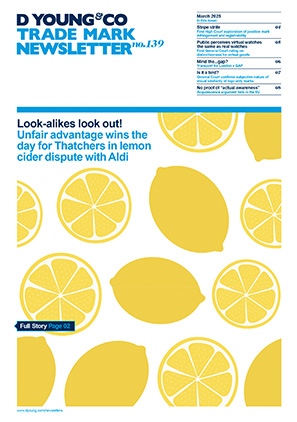UKIPO opposition decision: Stihl got it!
In a recent decision from the UKIPO, Andreas Stihl AG & Co KG successfully opposed an application for the trade mark (shown below) of STIGA AB for lawn mowers in class 7 and related goods and services in classes 9 and 37, based on earlier registrations for STIHL covering similar goods and services.

The basis of the opposition was Sections 5(2)(b), 5(3) and 5(4) of the Trade Marks Act 1994. The determining factor in the case was the extent of the reputation Stihl enjoys in its STIHL mark in relation to “gardening equipment, machines and power-operated equipment for use in agriculture and forestry, not including lawnmowers” and the very high degree of enhanced distinctiveness this has created in the mark.
Decision
What is so interesting about this case is that Stihl failed on Sections 5(2)(b) and 5(4) and succeeded only in relation to Section 5(3). The opposition failed on Section 5(2)(b) owing to the marks themselves not being similar enough to create a likelihood of confusion (direct or indirect) to satisfy the threshold on this ground. The opposition also failed under Section 5(4) because the marks were again held not to be similar enough for any misrepresentation to occur, and without misrepresentation there is no damage and therefore no passing off under Section 5(4). However Stihl’s opposition succeeded on the grounds of Section 5(3) for the following reasons.
Reputation
The STIHL mark enjoys a strong reputation for “gardening equipment, machines and power-operated equipment for use in agriculture and forestry, not including lawn mowers”. Sales of these STIHL branded products are over £100 million per year in the UK (including turnover of over £3 million per year for lawn mowers). The average annual marketing budget for the UK is around £5 million.
Link
Although the marks are visually similar only to a below medium degree, aurally similar to a low degree, and the conceptual position is neutral, the earlier mark is highly distinctive and enjoys a strong reputation in relation to goods which are similar to at least a medium or low degree to the contested goods and services and the relevant public will be the same. Weighing all of these factors, the hearing officer found that the earlier mark is likely to be brought to mind by the relevant pubic when encountering the contested mark on all of the goods and services at issue.
Damage
The evidence satisfied the hearing officer that Stihl has a long-standing and strong reputation for various high quality gardening machines and power tools (not including lawn mowers). It was found that there is a non-hypothetical risk that, for those goods and services where a link is made between the contested mark and the earlier mark, this is likely to result in the reputation of high quality gardening machinery, associated with the earlier mark, transferring to the later mark. This association is likely to make STIGA AB’s job of marketing its goods and services easier and make them more attractive to the relevant public, thereby giving STIGA AB more custom than it otherwise would have enjoyed had that association not been made. Stihl has spent an enormous sum of money year-on-year promoting its mark. As the association made in the consumer’s mind with the earlier mark would come without paying any compensation to Stihl, and without STIGA AB expending the money necessary to create that own image for its goods and services, it was found that this constitutes unfair advantage.
Due cause
The applicant did not submit their defence based on due cause in time and in any event this late filed defence had no weight even if had been pleaded in a timely manner.
Ground succeeds
Due to the extent of the reputation enjoyed by the opponent and the very high distinctive character of the earlier mark, the hearing officer found the requisite link between the marks, and subsequent damage through unfair advantage, despite the low similarity of the marks themselves.
In short
This decision highlights the importance of filing evidence of reputation where it is available, and to rely on all relevant grounds of opposition, as it is not always possible to predict which of these may be successful. This is certainly a positive decision for rights holders that enjoy a substantial reputation, as the necessary link was established despite only a low degree of similarity being found between the trade marks themselves.
Case details at a glance
Jurisdiction: England & Wales
Decision level: UKIPO
Parties: Stiga AB v Andreas Stihl AG & Co KG
Date: 22 May 2024
Citation: O-0461-24

